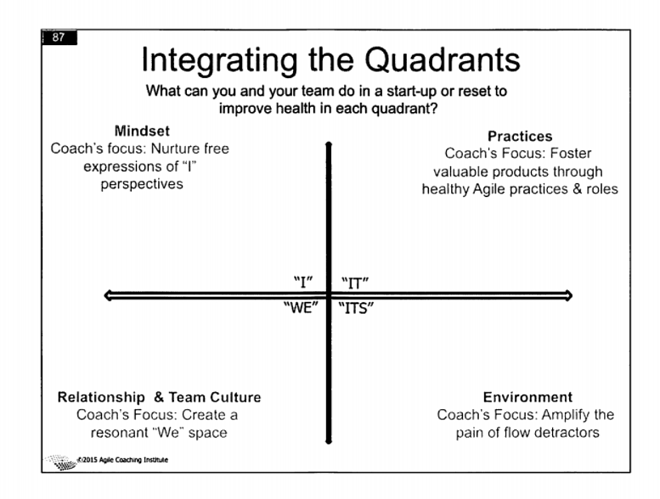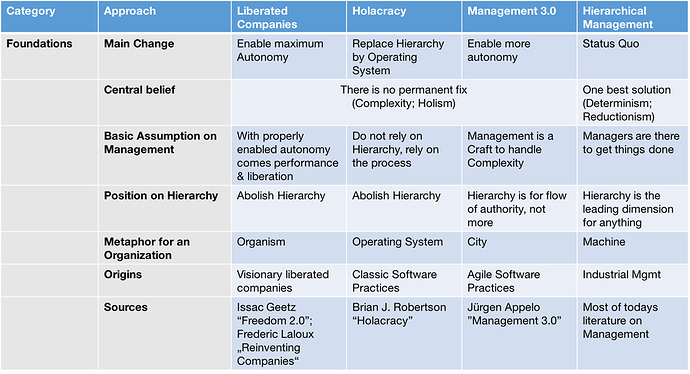Nice summary! Thank you, sir.
I guess that, according to this chart, I’d be in the Management 3.0 camp. Setting “flow” to be the objective of management is an outgrowth of “Management is a Craft to handle Complexity”. This means that management must have some mastery of the concepts in Complexity Science–chief among these, of course, would be emergence.
In my mind, the reason management has a role to play in emergence (and “flow” is an emergent quality of a well-managed group, IMHO) is that emergence doesn’t occur in a vacuum. It arises in response to some form of adaptive pressure. I’m a big fan of autonomy. I think it has all kinds of benefits, ranging from job satisfaction to team efficacy. But it has to be autonomy applied to some purpose, and that purpose has to come from somewhere. It might be possible in some cases for the group to contain within it the ability to consume and comprehend the complexity of the larger organization to which they belong, and the complexity of the external world that the organization serves. But I submit that these cases are rare. In most organizations of any size, it becomes essential for someone(s) to separate the information from the noise and distill this into a set of goals and objectives for the group. Likewise, it’s helpful to have someone with the authority and budget to get the team what it needs. Do you need a coach? OK, let’s get you a coach. Do you need a bullpen? OK, let’s get you a bullpen. Do you need better collaboration tools? OK, let’s go get them.
Looking at Sociocracy 3.0 (thank you for that), the distilling and facilitating functions might be provided by someone with a title other than “manager”, but it still talks about “organizational drivers” and groups being “semi-autonomous” and “delegating accountability for a domain to an individual”. I would be perfectly happy to change the original statement so that it doesn’t contain the word “managerial”. What should it be?
The pinnacle of __________ success is to provide the challenges and support that induce “Flow” in the individual staff members and the team collectively.



